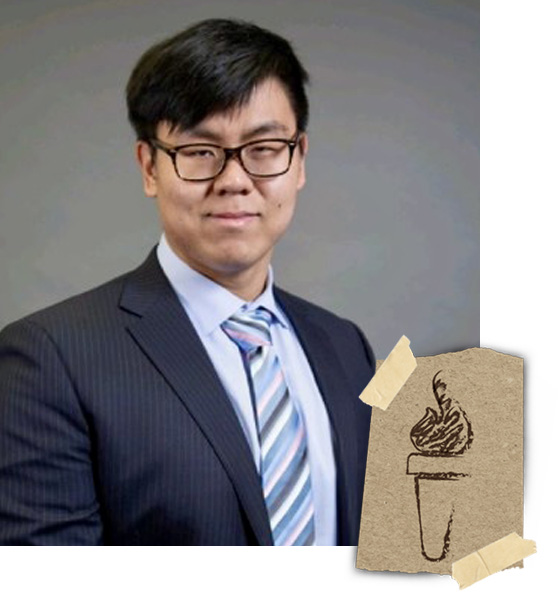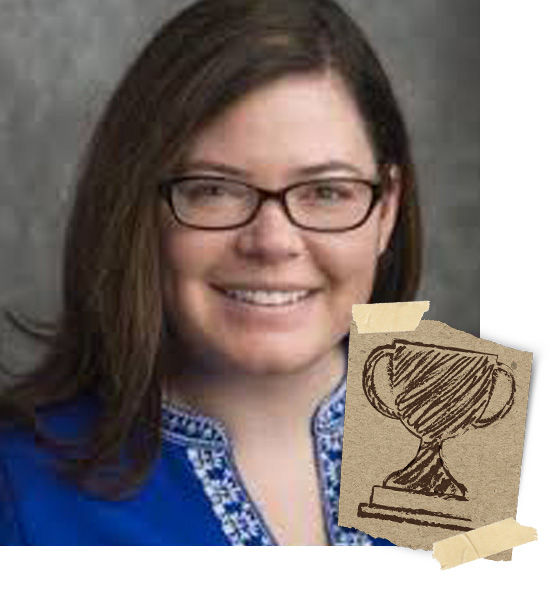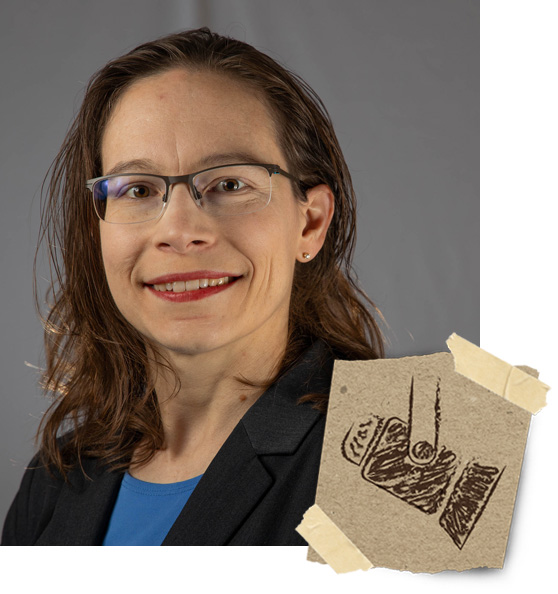Access Torch: Bobicheng (Beau) Zhang
July 18, 2025 - Emily Jodway
 During the month of July, we commemorate the historic signing of the Americans with Disabilities Act on July 26, 1990 with the celebration of Disability Independence Day. The Americans with Disabilities Act was a first of its kind civil rights law supporting disabled individuals in their right to equal opportunity and accessibility, and affords protection against discrimination on the basis of ability. Celebrating Disability Independence day also serves as a reminder of the ways in which we can support the disabled community and create a more accessible society for all.
During the month of July, we commemorate the historic signing of the Americans with Disabilities Act on July 26, 1990 with the celebration of Disability Independence Day. The Americans with Disabilities Act was a first of its kind civil rights law supporting disabled individuals in their right to equal opportunity and accessibility, and affords protection against discrimination on the basis of ability. Celebrating Disability Independence day also serves as a reminder of the ways in which we can support the disabled community and create a more accessible society for all.
Bobicheng (Beau) Zhang is a PhD candidate studying cognitive neuroscience in the psychology department at Michigan State. Beau engages with various organizations on campus supports individuals with disabilities, and he has participated in several projects dedicated to promoting accessible research. He is passionate about advocating for these individuals as well as promoting education and awareness of disabilities both visible and invisible.
Beau received his bachelor’s degree in psychology from the University of Denver before going on to study the social sciences at the University of Chicago with their Institute for Mind and Biology. He has always had an interest in better understanding human behavior.
Beau was studying in Chicago when he attended a guest lecture being presented by MSU psychology Associate Professor Jan Brascamp. This led him to look into attending grad school at Michigan State, and Brascamp, who specializes in cognition and cognitive neuroscience, became his advisor.
“I thought [Jan’s] research was very, very interesting and very similar to mine,” he said. “I had also never been to a large state school, and I’ve always heard about the campus spirit here and wanted to see what that was like.”
Prior to beginning his PhD, he earned an additional master’s degree, this time in psychology, from MSU. As a graduate student, Zhang has been the teaching assistant for several undergraduate courses on campus and assists undergraduate researchers in his lab. In March of 2025, he was recognized as Educator of the Month by the Graduate School at MSU. Beau takes the time to work with students and support them in different areas, such as lab work, conducting and presenting research, or taking the next step and applying for grad school.
“I definitely received similar help from graduate students when I was in undergrad, which helped a lot in my decision of going to grad school and ending up on this path,” he said.
Each and every person is unique, and we all form our own perceptions when presented with information. We process things differently, have preferred learning styles, and may need assistance in some areas more than others. As both a student and an educator, Beau takes this into account when teaching undergraduate courses and working with student researchers. He highlights the fact that students come from very diverse backgrounds, and some may excel in certain areas of academia while others struggle and vice versa.
This is also the case for students with physical or intellectual disabilities. Acknowledging this aids Beau in discovering what makes each individual student grow.
“Because each student comes from a different background, some might be better at reading and understanding the background knowledge of a topic. Some might be better at the technical aspect of things.”
Beau’s research centers around understanding the underlying mechanisms of visual perception, more specifically the processes happening in the brain when we are presented with an ambiguous visual input, such as an optical illusion.
“We’re really studying the pupil and looking at eye movements, so we can better understand what’s going on in the brain when we perceive those illusions,” he explained. “We look at how the pupil responds to different stimuli and visual events.”
Beau goes on to explain that, while the visual system is relatively well-studied and our understanding of when and why our pupils may dilate or constrict, there is more to be discovered about what processes actually occur in the brain during these moments.
“In the long term, it could contribute to a deeper understanding of the visual system, and there are still a lot of areas that can be explored. Ambiguity in general can be used to better understand how human consciousness works, so there are some bigger-picture possibilities there.”
In addition to offering support for his own students, Beau has also sought out ways that he can support himself and other graduate students through different organizations on campus. He describes the graduate student experience as somewhat isolating, and appreciates groups like the Council of Graduate Students and the Graduate Student Union, which host events to connect graduate students with one another and give students a voice in decision-making.
“That’s the big thing, there’s a lot of student involvement in almost every possible aspect,” he said. “A lot of student-led events, student-led policy changes, that really make me feel the presence of a college campus.”
Beau also uses his involvement with fellow graduate students to advocate for the disabled student community. After encountering a few struggles of his own midway through his PhD program, he sought out support groups through MSU Counseling and Psychiatric Services and joined the Graduate Student Accessibility and Support Network, an organization dedicated to efforts in making life on campus more accessible for graduate students. He has also taken his own initiative and presented on disability awareness at a recent graduate student Lunch and Learn event, and more events will happen in the future to help graduate students with accommodations and creating accessible teaching materials of their own.
“I go to a bunch of Resource Center for Persons with Disabilities events, I work with undergraduate organizations to advocate for more support on the graduate student side of things, to advocate for the voices of disabled students to be heard and to gain more accommodations for graduate students.”
Both as an educator and in his personal life, Beau strives to cultivate a more inclusive world, which may look different depending on the role he is playing, teacher or student. “For someone who is teaching, ideally you are looking to make your materials accessible and available in multiple formats,” he explained. “For me, if I’m organizing events with colleagues or peers, I should take into consideration any possible accommodations they might need, and not make assumptions on accommodations that might not end up working for everyone.”
One of the reasons Beau was inspired to host a disability awareness event in the first place came from his own experiences; he found that in his daily life as a graduate student, disability wasn’t something that often crossed his mind. But once he went through his own personal journey and became aware of the challenges these individuals face, it felt much easier to challenge misconceptions and make efforts towards accessibility. But the first step is realizing and understanding that these problems exist.
“I think having Disability Independence Day is helpful in that sense,” he said. “It’s a day that, once people are aware of it, can get them to think about the various aspects of disabilities that are affecting people that they probably hadn’t thought of before. Once that awareness is spread, and people are thinking and talking about it, it’s much easier to transition to more and more inclusive environments.”
Currently, Beau is assisting in the planning of the 2025 MSU Disability Summit. The event’s themes are centered around the lived experiences of those with disabilities, and creating and implementing more accessible practices. More information can be found here.
Honorees’ views are their own and do not necessarily reflect those of the College of Social Science.
Read more:

Access Champion
Faculty/Staff
Dr. Sarah Dunkel-Jackson
Dr. Sarah Dunkel-Jackson is a professor in the Department of Human Development and Family Studies (HDFS) and our Access Champion this month. She is also involved with the MSU Research in Autism and Developmental Disabilities (RADD) Lab on campus.

Access Spotlight
Alumni
Kristen Columbus
Our July Access Spotlight is Kristen Columbus, President and CEO of the Washtenaw Association for Community Advocacy (WACA) and a 2020 graduate of the School of Social Work.

Access Matters
We strive to cultivate an inclusive and welcoming college environment that celebrates a diversity of people, ideas, and perspectives.

